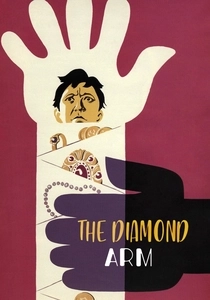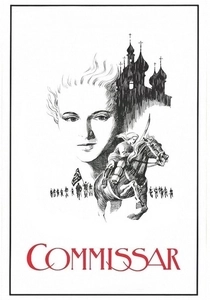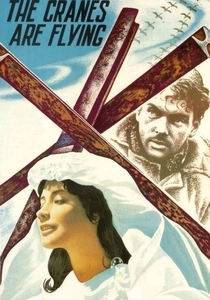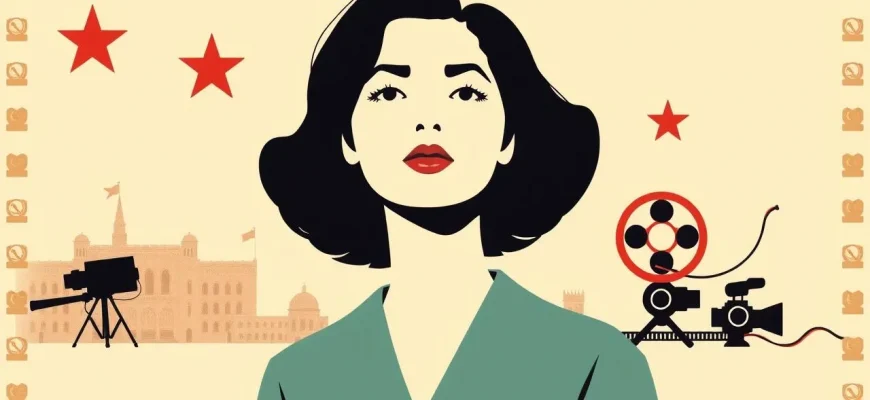Soviet cinema has often been recognized for its political and social commentary, but it also provided a platform for exploring feminist themes and showcasing strong female characters. This curated collection of 10 Soviet films delves into the lives of women who challenge societal norms, fight for equality, and assert their independence. Each film offers a unique perspective on feminism within the context of Soviet culture, making this selection not only entertaining but also enlightening for those interested in the intersection of cinema and gender studies.

The Diamond Arm (1969)
Description: While primarily a comedy, this film features Anna, a character who defies traditional gender roles by taking an active role in the adventure, showcasing her wit and courage.
Fact: It is one of the most popular Soviet comedies, with lines from the film becoming part of everyday Russian language.
 Watch Now
Watch Now 
The Commissar (1967)
Description: This film portrays the life of a female commissar during the Russian Civil War, highlighting her struggle with motherhood and duty, offering a nuanced view on women's roles in conflict.
Fact: It was banned in the Soviet Union for 20 years due to its critical portrayal of the Soviet system.
 Watch Now
Watch Now 
The Dawns Here Are Quiet (1972)
Description: This war drama focuses on a group of female anti-aircraft gunners, showcasing their bravery and the harsh realities of war, emphasizing the strength of women in combat.
Fact: The film was remade in 2015, highlighting its enduring popularity and relevance.
 Watch Now
Watch Now 
The Cranes Are Flying (1957)
Description: This film tells the story of Veronika, who faces the harsh realities of war and societal expectations, showcasing her resilience and strength. It's a poignant exploration of love, loss, and the feminist struggle in wartime.
Fact: The film won the Palme d'Or at the Cannes Film Festival in 1958, marking a significant achievement for Soviet cinema.
 30 Days Free
30 Days Free 
The Station Master (1972)
Description: Based on a Pushkin story, this film explores the life of a station master's daughter, Dunya, who embodies the spirit of independence and the quest for personal freedom.
Fact: The film was part of a series of adaptations of Pushkin's works, highlighting its literary significance.
 30 Days Free
30 Days Free 
A Cruel Romance (1984)
Description: Based on Ostrovsky's play, this film explores the life of Larisa, who challenges the patriarchal norms of her time, making it a compelling study of female agency.
Fact: The film was nominated for the Golden Prize at the 14th Moscow International Film Festival.
 30 Days Free
30 Days Free 
The Girl Without Address (1957)
Description: Katya, a young woman navigating life in Moscow, embodies the spirit of independence and self-discovery, making this film a subtle yet powerful statement on female autonomy.
Fact: The film was one of the first Soviet comedies to gain international recognition.
 30 Days Free
30 Days Free 
The Irony of Fate (1975)
Description: Nadya's character in this New Year's classic demonstrates the strength and independence of Soviet women, navigating through life's unexpected turns with grace and determination.
Fact: The film is traditionally watched by millions of Russians every New Year's Eve.
 30 Days Free
30 Days Free 
The House Under the Cherry Tree (1972)
Description: A story of a woman who, after losing her husband, must navigate life alone, showcasing her resilience and the feminist theme of self-reliance.
Fact: The film was based on a novel by the same name, which was quite popular in the Soviet Union.
 30 Days Free
30 Days Free 
The Story of Asya Klyachina (1966)
Description: This film delves into the life of Asya, a woman whose journey reflects the broader themes of women's liberation and the struggle against oppressive societal norms.
Fact: The film was initially banned and only released in 1987, showcasing its controversial nature.
 30 Days Free
30 Days Free 








